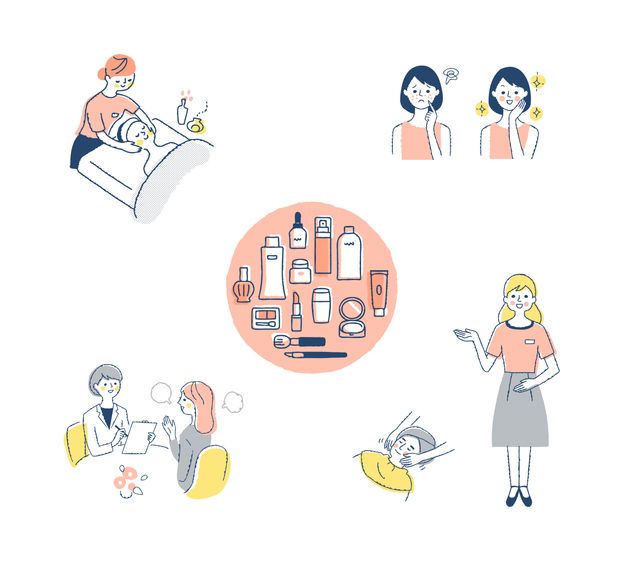
Book Now to Experience
Acne Treatment
1 Minute Self-Registration
Date should not be before minimal date
Author: Leila Tan|Updated: 23 July 2024
Acne is a dermatological condition characterised by the presence of pimples, blackheads, and whiteheads on the skin. It occurs when the hair follicles become clogged with oil, dead skin cells, and bacteria. While acne commonly affects the face, it can also appear on other parts of the body, such as the back, inner thighs, and chest. Numerous millions of individuals around the world suffer with acne, a prevalent skin problem. It might be upsetting and negatively affect one's self-esteem. In this article, we'll examine a number of acne treatment alternatives, such as hormonal acne therapy, inner thigh acne treatment, fungal acne treatment, back acne treatment, and acne vulgaris treatment. You can take preventative measures to manage and relieve this annoying condition by being aware of the many types of acne and their corresponding therapies. Before getting into specific acne solutions, it's important to know what causes acne and why it is so important to prevent and fight them because acne can have a substantial negative effect on a person's confidence and self-esteem. Acne management and upholding a positive self-image might be difficult, but there are practical methods for boosting self-esteem and enduring this path with fortitude.

1
Understanding the Link between Acne and Self-esteem
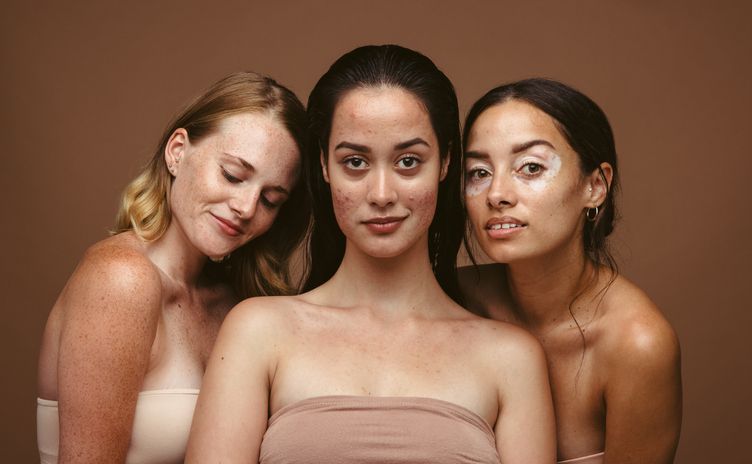
People of all ages can get acne, from youth to adults. When zits, blackheads, and cysts show up on your face, neck, chest, and back, it can make you feel embarrassed, self-conscious, and lower your self-esteem. People often misunderstand how acne affects them emotionally, even though it can affect their social life, relationships, and quality of life as a whole.
The link between acne and self-esteem is complicated and has many different parts. Acne can make people feel bad about how they look, which can make them feel ashamed and insecure. Self-esteem can be hurt even more by having a bad opinion of yourself and comparing yourself to people with fair skin. While building self-confidence, it is important to recognise and deal with these feelings.

2
Tips for Boosting Confidence with Acne
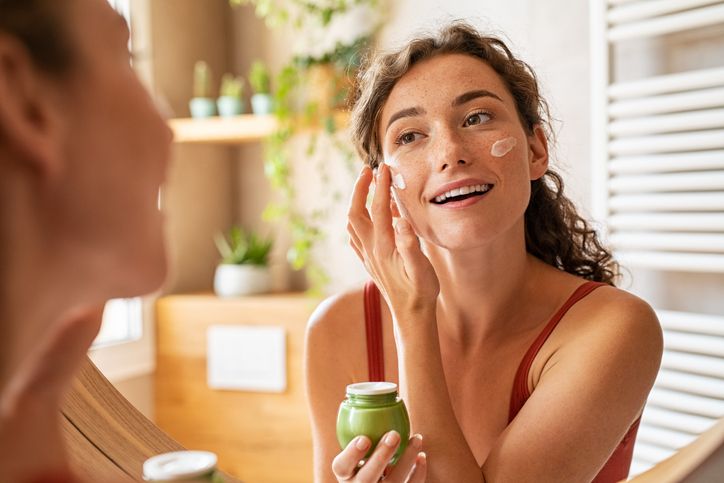
Develop a skincare routine
Developing a regular skincare practice can aid in the control and improvement of acne. Talk to a dermatologist to find out which products and procedures will work best for your skin. Clearer skin and a sense of mastery over acne care can result from sticking to a programme that includes gentle cleaning, exfoliation, and the use of acne-fighting substances.
Focus on overall health
Keep in mind that there are more intangible ways to boost your self-worth and confidence. Focus on your health as a whole and make good choices. Maintain a healthy routine of physical activity, nutritional intake, sleep, and stress management. Taking care of yourself physically, mentally, and emotionally may do wonders for your outlook on life.
Embrace Self-care
Take part in pursuits that make you happy and give you a sense of accomplishment. Prioritise things that make you happy, whether that's engaging in a favourite pastime, spending time with loved ones, or engaging in self-care rituals. Taking care of yourself sends the message that you deserve happiness and love no matter how your skin looks.
Use makeup as a confidence boost
If you are happy with makeup, it can help you feel better about yourself. Look into makeup that isn't comedogenic and won't clog your pores or make your acne worse. Try out different techniques to find a way to cover up that looks natural and makes you feel your best without making your face worse.
Getting over acne and building up your self-esteem and confidence is a slow process that takes patience, self-care, and compassion for yourself. By using these tips and tricks, you can deal with the mental problems that come with acne and improve your self-image. Next, let's get into specific acne solutions.
Read More

3
Breaking Down Acne into Areas: Back Acne Treatment
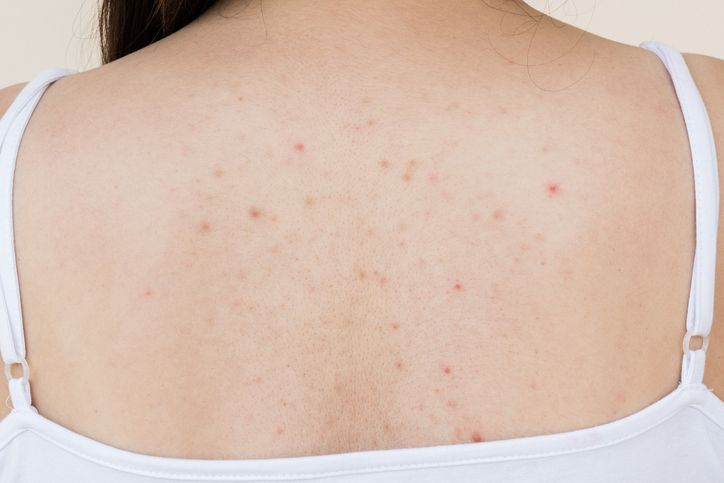
Causes of back acne
Back acne, also called "bacne," can be caused by a number of things, such as hormonal problems, sweating too much, rubbing from clothes, and even your genes. Understanding the root causes helps make a treatment plan that will work.
Prevention tips
To stop back acne, it's important to keep good cleanliness, wear clothes that let air in, avoid sweating too much, and clean the back often. Also, you can avoid clogged pores by not wearing clothes that are too tight and by using skin care products that don't cause acne.
Treatment options
Acne on the back can be treated with creams, cleaners, and exfoliants, among other things. In severe cases, doctors may prescribe oral medicines and skilled treatments like chemical peels or laser therapy. A dermatologist can give you personalised advice on how to treat back acne effectively.

4
Cystic Acne Treatment
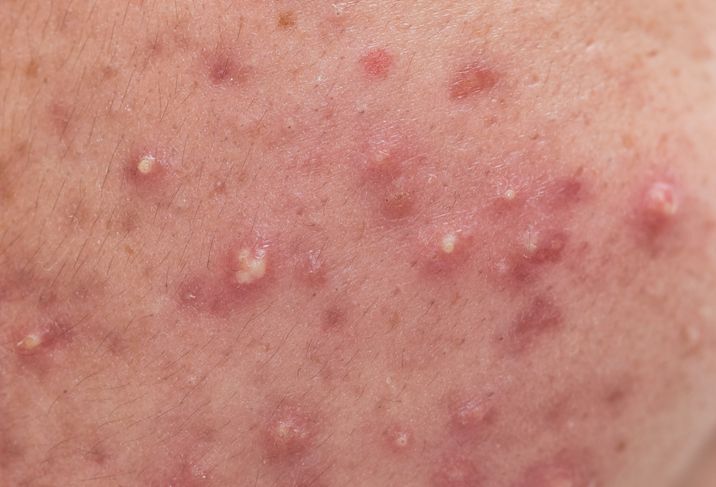
Symptoms and Causes
Cystic acne is a serious form of acne that causes large, painful cysts under the skin that are red and swollen. It's usually caused by a mix of things, like hormonal problems, too much oil production, and certain germs on the skin. Cystic acne can leave deep scars and needs to be treated right away and in the right way.
Effective remedies
To get rid of cystic acne, you need to treat both the underlying causes and the visible signs. Some efficient solutions are:
1. Topical treatments Dermatologists often recommend topical medicines with retinoids, benzoyl peroxide, or salicylic acid to reduce inflammation and unclog pores.
2. Oral medications In severe cases, antibiotics, isotretinoin, or hormone medications that are taken by mouth may be given to reduce inflammation and keep hormone levels normal.
3. Professional procedures Dermatological treatments like corticosteroid injections, cyst drainage, and cyst removal can be used to relieve pain and help the body heal.
Professional Help
Because cystic acne can be painful and leave scars, it is very important to see a doctor for help. They can give you an accurate diagnosis, figure out the best way to treat you, and keep a close eye on your progress. A dermatologist may also suggest changes to your lifestyle and give advice on how to take care of your face to stop future breakouts.

Book Now to Experience
Acne Treatment
1 Minute Self-Registration
Date should not be before minimal date

5
Fungal Acne Treatment
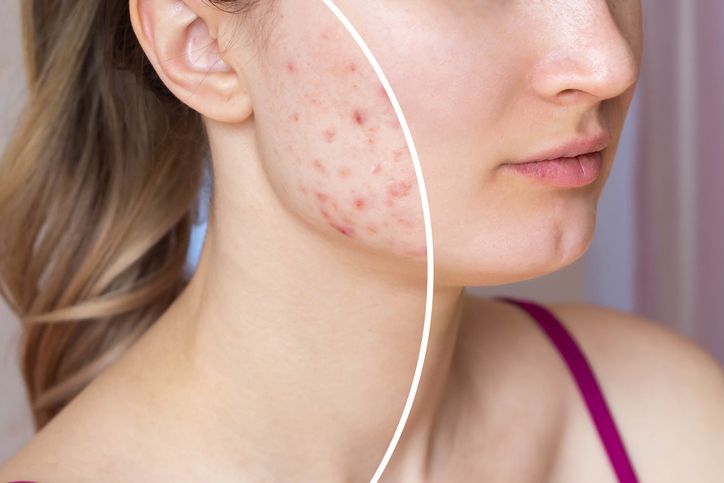
Differentiating fungal acne
Fungal acne, also known as pityrosporum folliculitis, is often mistaken for traditional acne but has different causes and requires specific treatment. It is caused by an overgrowth of yeast on the skin, resulting in small, itchy, acne-like bumps. To effectively treat fungal acne, it's important to differentiate it from other forms of acne.
Home remedies
Mild cases of fungal acne can often be managed with home remedies, including:
1. Antifungal cleansers Using cleaners with tea tree oil, ketoconazole, or zinc pyrithione can help stop yeast from growing too much.
2. Gentle exfoliation Exfoliating your skin regularly with light scrubs or chemical exfoliants can help get rid of dead skin cells and keep your pores from getting clogged.
3. Antifungal creams To help treat the infection, apply over-the-counter antifungal treatments to the afflicted regions.
Medical treatments
If you have recurrent or severe fungal acne, you may need to see a doctor. To treat the infection, a dermatologist can write a prescription for stronger antifungal drugs, like pills or creams that go on the skin. They can also tell you how to take care of your face and make changes to your lifestyle to keep fungal acne from coming back.

6
Inner Thigh Acne Treatment
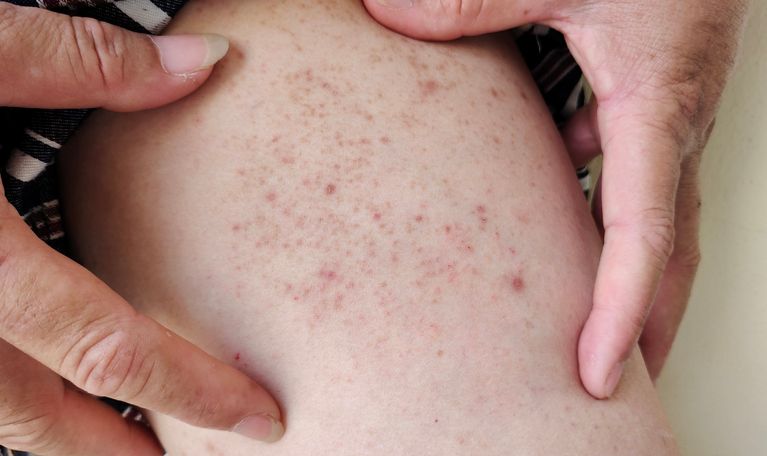
Causes and prevention
Acne on the inner legs can be caused by friction, sweat buildup, bad hygiene, or folliculitis, among other things. To avoid getting acne on your inner thighs, you should keep your skin clean, wear clothes that let air in, and try not to sweat too much. Keeping the inside of your thighs clean and dry can help reduce the chance that acne will form there.
Treating Inner thigh acne
Think about the following steps to treat acne on the inner thigh:
1. Gentle cleansing Use a gentle cleanser and warm water to wash the inside of your thighs. Don't scrub too hard.
2. Topical treatments Use over-the-counter creams or ointments with salicylic acid or benzoyl peroxide to treat acne and lessen inflammation.
3. Avoiding irritants Avoid wearing tight clothing that can cause friction and irritation to the inner thigh area. Opt for loose-fitting clothing made of breathable fabrics to allow proper airflow.
4. Home remedies Natural treatments like tea tree oil, aloe vera, and witch hazel can be put on the affected area to make it feel better and reduce swelling.
If acne on the inner thigh doesn't go away or gets worse, you should see a doctor to find out what's wrong and how to treat it. They may give you prescription-strength medicines or suggest other ways to treat the acne's root causes.
Read More

7
Acne Vulgaris Treatment
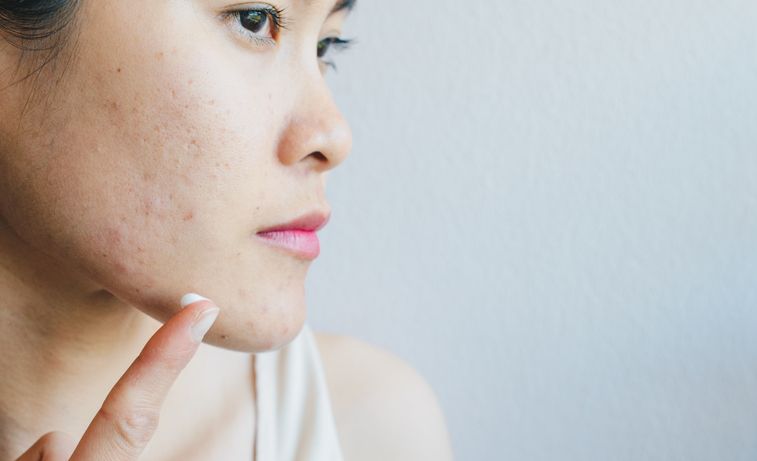
Overview and causes
The most common type of acne is acne vulgaris, which most people just call acne. It is marked by blackheads, whiteheads, pimples, and sometimes cysts or lumps. Acne vulgaris is usually caused by a mix of things, such as too much oil, clogged pores, an overgrowth of germs, and inflammation.
Topical treatments
The initial line of treatment for acne vulgaris is frequently topical medication. They consist of:
1. Retinoids Retinoids obtained by prescription, such as tretinoin or adapalene, can promote skin cell turnover, reduce inflammation, and unclog pores.
2. Benzoyl peroxide Products containing benzoyl peroxide sold over-the-counter are helpful at eliminating acne-causing bacteria and lowering excessive oil production.
3. Salicylic acid This beta-hydroxy acid aids in pore cleaning, skin exfoliation, and irritation reduction.
4. Topical antibiotics Antibacterial creams or gels containing ingredients like clindamycin or erythromycin can be prescribed to reduce bacteria on the skin.
Oral medications
If you have mild to severe acne vulgaris, you may be given pills to take by mouth. Some of these are:
1. Antibiotics Antibiotics like doxycycline or minocycline can help kill bacteria and lower inflammation.
2. Hormonal medications For women with acne caused by hormones, oral contraception or anti-androgen drugs can help control hormone levels and clear up acne.
3. Isotretinoin This potent oral medicine is only used in cases of severe acne. It has long-lasting effects, lowers oil production, and avoids clogged pores.

8
Hormonal Acne Treatment
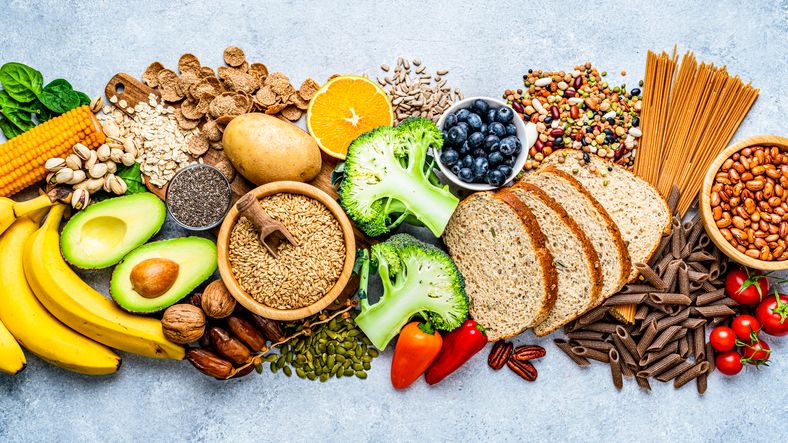
Understanding hormonal acne
Changes in hormone levels, especially androgens like testosterone, are the main cause of hormonal acne. It happens to women a lot when their hormones change, like during puberty, menstruation, pregnancy, or menopause. Hormonal acne usually looks like deep, painful cysts on the lower face, jawline, and chin.
Lifestyle changes
Making certain lifestyle changes can help manage hormonal acne:
1. Healthy diet A well-balanced diet full of fruits, vegetables, whole grains, and lean proteins can help keep hormones in check and keep your skin healthy generally.
2. Stress management Stress can make pimples from hormones worse. It can be helpful to do things like yoga, meditation, or exercise to relieve stress.
3. Skincare routine Using products that don't clog pores and cleaners that are gentle can stop redness and swelling.
Medical interventions
If hormonal acne doesn't go away after making changes to your lifestyle, you may need medical help:
1. Oral contraceptives Birth control pills with oestrogen and progestin can help women control their hormone levels and get rid of acne.
2. Anti-androgen medications These drugs stop androgens from working and can be given to reduce hormonal acne.
3. Spironolactone This medicine is often given to stop the effects of androgens and cut down on the production of grease.
3. Spironolactone This medicine is often given to stop the effects of androgens and cut down on the production of grease.
4. Hormone replacement therapy Hormone replacement treatment can help balance hormone levels and get rid of hormonal acne in women who have hormonal imbalances during menopause.

Book Now to Experience
Acne Treatment
1 Minute Self-Registration
Date should not be before minimal date

9
A Long-Term Treatment to Save You from All the Pimples
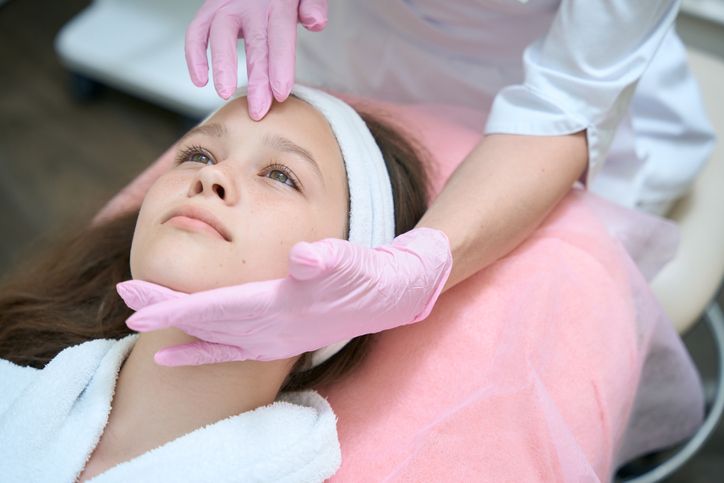
Treatments made expressly for treating pimples can help with acne issues and are generally more effective than natural acne remedies. Given that acne in various areas can be a headache, those on our face are usually the most “hated” and in need to be eliminated. Thankfully, technology nowadays such as microdermabrasion is one of the more well-liked treatments. A skincare treatment called microdermabrasion makes scars, wrinkles, and other ageing symptoms less obvious.
It functions by removing the top layer of dead skin cells from the face and using an exfoliating tool to gently scrape away any dirt or sebum that remains. This helps to unclog pores, enhance blood flow, lessen inflammation, and even out skin tone. Here's some good news if you want to quickly get rid of acne: More effectively than spot therapy or acne medication, New Beauty's Acne therapy may be able to address acne issues.

10
Say Goodbye to Pimples Faster Than Before: How New Beauty Acne Treatment Can Give You Clearer Skin!
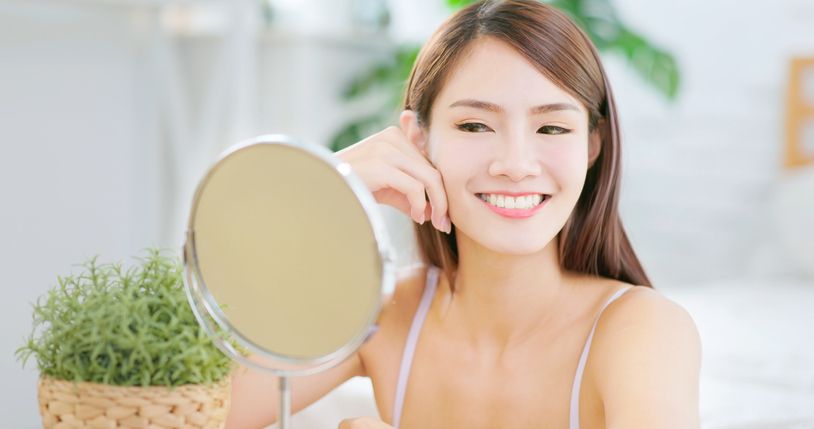
Acne-prone skin types are ideal candidates for Acne Treatment by New Beauty. Vacuum microdermabrasion is used in this procedure to unclog pores, reduce irritation, and speed up the skin's natural shedding process.
The dual spiral suction plus drainage procedure during treatment can assist to open up your pores and lessen the inflammatory and contagious effects of acne by removing dead skin cells. Following that, a moisturising serum will be injected into the skin to encourage the development of collagen and control sebum production. A lack of extra oil production will reduce the likelihood of future acne outbreaks.
Therefore, a wide range of skin problems, such as active acne, blemishes, blackheads, whiteheads, pockmarks, enlarged pores, dry skin, acne scars, and a generally unappealing appearance, can be helped by this acne treatment. Because the therapy moisturises the skin, encourages collagen synthesis, and decreases sebum excretion, acne and blackheads are minimised. For longer-lasting outcomes, it can also be used with other topical medications such retinoids or benzoyl peroxide.
Read More

11
Conclusion
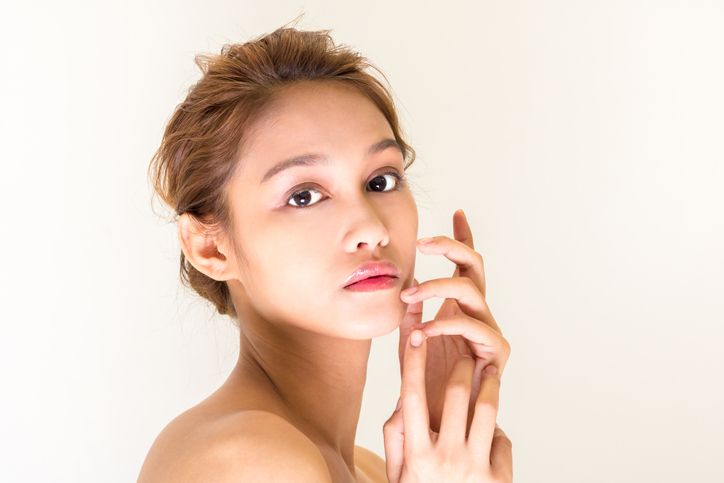
Acne is a common skin problem that can affect a person's self-esteem and general health in a big way. Understanding the different kinds of acne and how to treat them is important if you want to treat and manage the condition well, they always occur when you least expect them so if you had enough of those pimples destroying your skin and would like to give your clogged pore a treat, try New Beauty Acne Treatment today!
FAQ
1. Can acne be completely cured?
With the right treatment and skin care practise, acne can be managed and kept under control. Even though it is possible to get clear skin, it may need to be taken care of regularly to stop future breakouts.
2. Are home remedies effective for treating acne?
Home remedies can help with mild acne, but they may not be enough for acne that is serious or keeps coming back. A dermatologist is the best person to talk to about a full treatment plan.
3. How long does it take for acne treatments to show results?
Depending on the severity of the acne and the chosen treatment, different treatments have different turnaround times. Before noticeable changes are seen, it could take weeks or even months.
4. Are there any side effects of acne medications?
Some acne medicines, especially those that are taken by mouth like accutane, could have side effects. Before starting any drug, it is important to talk to a dermatologist about possible risks and side effects.
5. Can diet affect acne?
Researchers are still looking into the link between diet and acne, but some studies show that some foods, like those with a high glycemic index and dairy products, may make acne worse in some people. Keeping a healthy diet is usually good for the health of your face as a whole.

Book Now to Experience
Acne Treatment
1 Minute Self-Registration
Date should not be before minimal date
Recommended Articles
COPYRIGHT© NEW BEAUTY MANAGEMENT LIMITED 2025. ALL RIGHT RESERVED.


